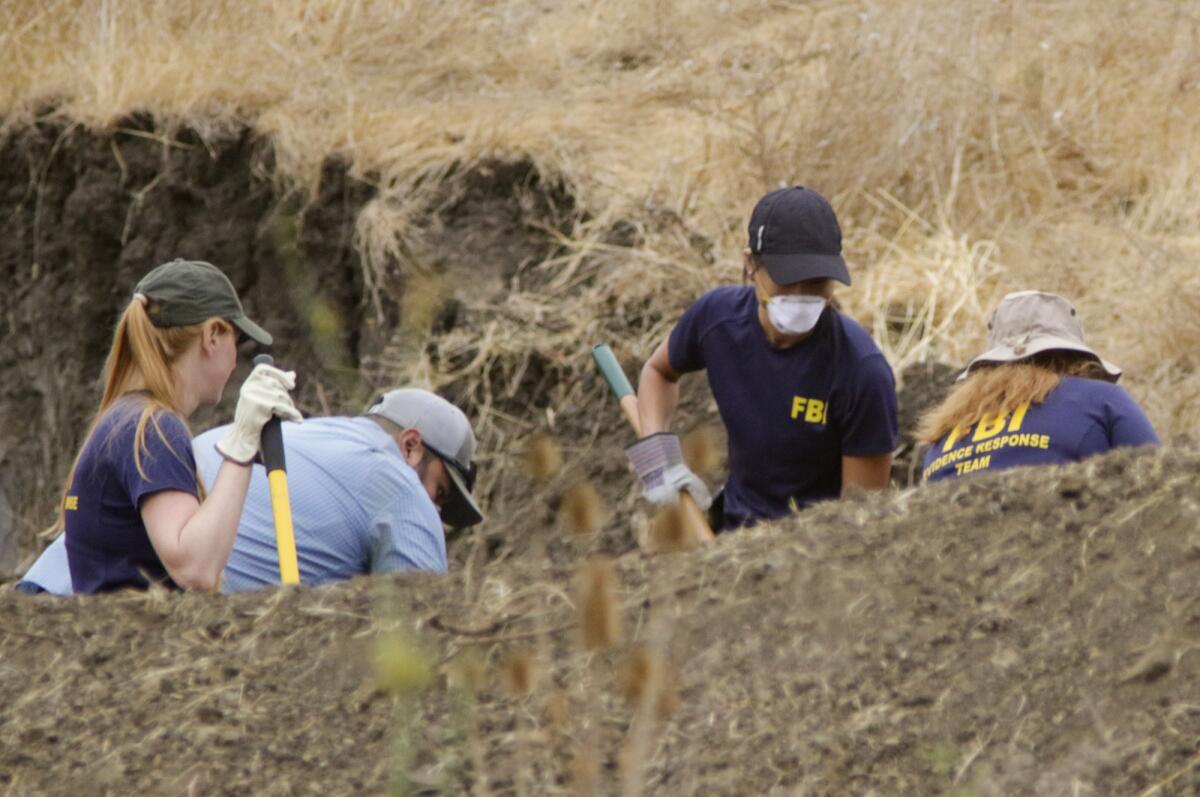Remains found during dig for missing Cal Poly student Kristin Smart could be human or animal

A dig of a hillside near where Cal Poly San Luis Obispo student Kristin Denise Smart was last seen alive 20 years ago recovered remains and they are being analyzed to determine whether they human or animal, local sheriff’s officials said.
But two sources familiar with the investigation, but not authorized to discuss it, said the bones are most likely animal.
FBI agents and sheriff’s deputies from San Luis Obispo County spent five days digging up three locations on the hillside last week.
“We are saying the remains that were recovered are being analyzed to see if they are animal or human and if they are related to the Kristin Smart case,” Tony Cipolla, a sheriff’s spokesman said.
The Smart case took a new turn this week when FBI agents and San Luis Obispo County Sheriff Ian Parkinson announced the excavation plans. They said they picked the locations based on a lead they had developed and because three FBI dogs trained to detect human decomposition “alerted” in those areas.
They searched an area 90 feet in radius from each location indicated by the dogs during a search last January. Heavy equipment was used to pull the dirt from the ground, where it is taken to a hard deck for agents to turn over with rakes and shovels.
RELATED: A Cold Case, a haunting mystery »
Smart disappeared on her way home from an off-campus party May 25, 1996. Searches were conducted with helicopters, horses and ground-penetrating radar to no avail. She was presumed dead.
Stan and Denise Smart, Kristin’s parents, have expressed cautious optimism about the new search. “We are encouraged and hopeful for the new developments in Kristin’s case. We have been hoping, praying and waiting for the last 20 years for the return of our daughter,” the statement said.
The Smarts said they were “confident that the ‘person of interest’ will soon be held accountable.”
That person of interest has been identified by Parkinson as Paul Flores, a fellow student who was seen with Smart as she walked toward the dorms that night.
Smart’s family has sued Flores in civil court, but he has not been criminally charged. In response to the Smart family’s suit, Flores denied “both generally and specifically each and every allegation” raised against him. He invoked his 5th Amendment right against self-incrimination before a grand jury and a civil deposition.
Smart, who was 19 when she disappeared, was officially declared dead in 2002.
Follow @lacrimes on Twitter
More to Read
Sign up for Essential California
The most important California stories and recommendations in your inbox every morning.
You may occasionally receive promotional content from the Los Angeles Times.











